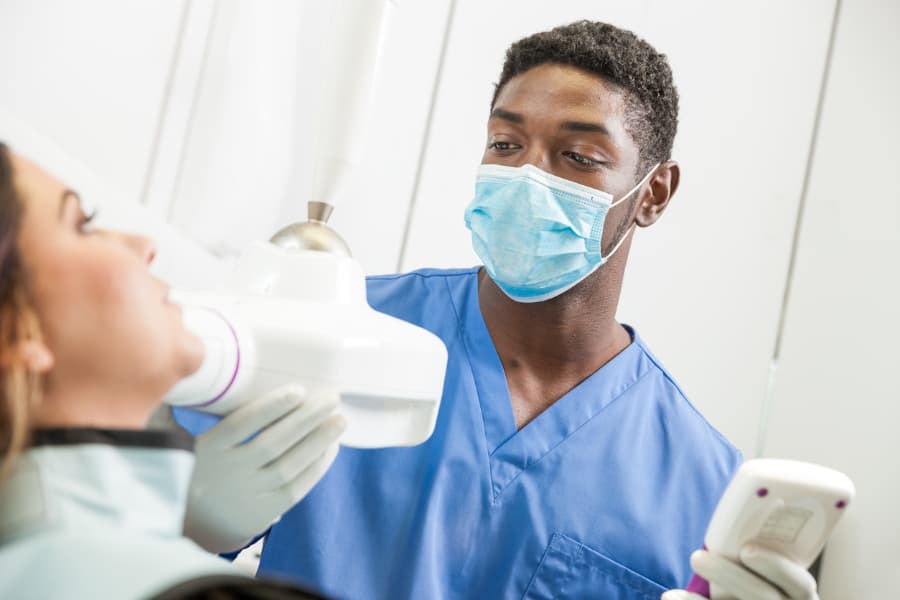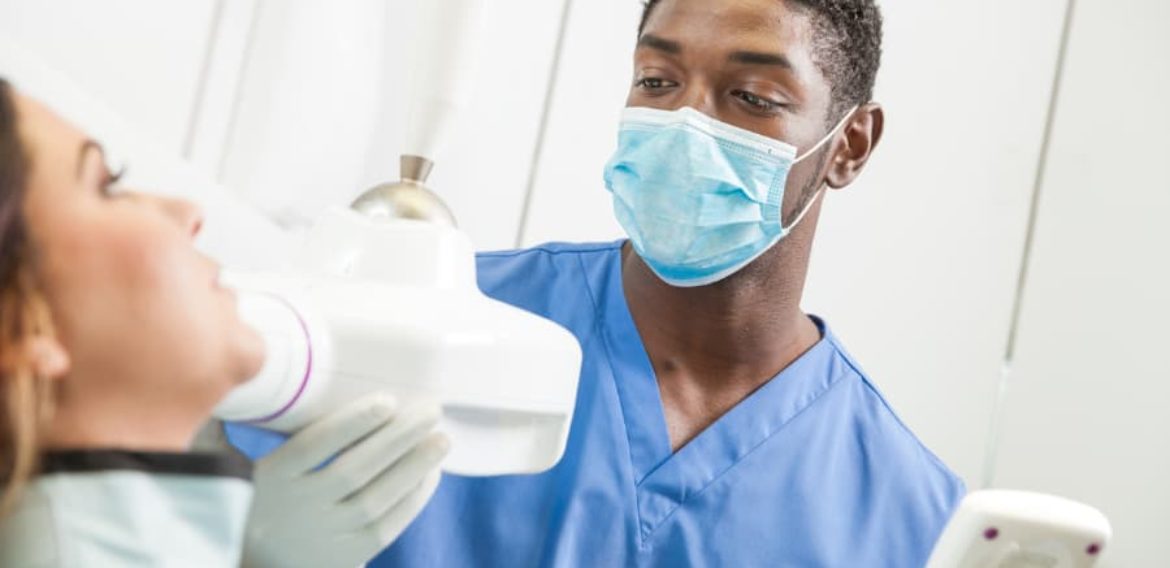What Dental Assistants Need to Know About X-Rays

Dental assistants must learn how to protect themselves and their patients when taking dental X-rays. This technology greatly aids the field of dentistry and benefits the maintenance of oral health. But dental assistants should be well educated about the risks to their personal health because they may take X-rays several times a day. And because the dental care team is responsible for the level of care that patients receive, dental assistants need to understand any risks associated with patient health.
At Northwestern College in Oak Lawn, IL, and the greater Chicago area, students learn safe practices for radiographic technology in the dental assistant certificate program. Here, we discuss what dental assistants need to know about this crucial aspect of oral healthcare.
What Are Dental X-Rays?
X-rays are a form of high energy with a short wavelength, allowing them to pass through many materials. The properties of X-ray radiation allow it to travel through or become absorbed by solid objects. In the case of dental X-rays, the energy passes through less dense objects, such as cheeks and gums, and is absorbed in objects with more density, such as teeth and other bones.
In the resulting images exposed on the X-ray film, highly dense areas of bone show up visually as light-colored areas, while the soft tissues are viewed as dark areas. Dentists are skilled at interpreting dental X-rays. Along with clinical examinations, radiographic films can help the dental care team diagnose and treat oral health problems.
Exercise Caution When Administering Dental X-Rays
When administering dental X-rays, dental assistants must protect both themselves and their patients from small amounts of emitted radiation. To take proper precautions, the dental assistant must understand the technology and associated dangers. In addition, risks must be explained to patients before receiving their clear consent for the administration of dental X-rays. For example, X-rays are contraindicated for pregnancy and may be refused by some patients with a history of cancer treatments.
It is crucial to operate radiographic technology knowledgeably and follow best practices. Safety protocols for dental X-rays include:
- Requiring patients to remove jewelry or eyeglasses if necessary
- Placing a lead apron on the patient’s chest, abdomen, and pelvic region
- Positioning the X-ray machine with accuracy to ensure the desired image
- Adding a lead collar around the neck to protect the thyroid gland, especially with young patients
- Explaining to patients that they need to hold still, reducing the need for retakes
- Asking whether patients are pregnant or might be pregnant
- Determining whether health history negates the use of X-rays
- Stepping out of the room for personal protection during the X-ray
- Making sure that radiographic equipment is operating properly
Helping Dental Assistant Students Succeed
At Northwestern College, we take safety seriously and include the latest protocols in our curriculum for dental assistants. The year-long certificate program is comprehensive and includes an externship component. This provides real-world experience at a dental office or health center, where students in the dental assistant program work side by side with experienced dental professionals. The externship helps builds confidence and strengthen student resumes.
We provide coaches for student success to support and empower our students throughout their dental assistant schooling. And within the Office of Career Development and Alumni Relations, Northwestern College offers a variety of career services, including interview guidance and job fairs. If you are interested in a career that allows you to promote good health, work with dedicated professionals, and make a positive difference in people’s lives, find out more about the dental assisting program at Northwestern College, serving Oak Lawn, IL, and the greater Chicago area. Request information today.

